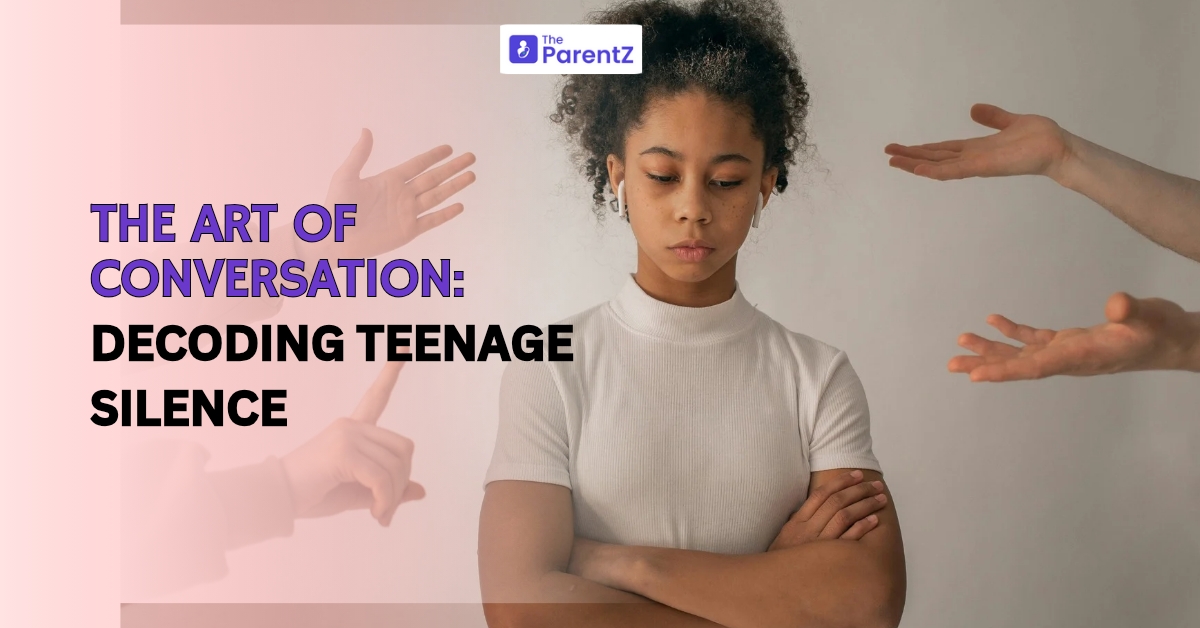The teenage years. A time of transformation, exploration, and yes, a whole lot of silence. As parents, that silence can be deafening. We long for the open communication of their childhood, the constant chatter that filled our days. But teenagers are on a journey of self-discovery, and sometimes, silence is the only compass they have.
Let’s take a deep breath and remember, their silence isn’t a personal rejection. It’s a reflection of a world that feels overwhelming and confusing. They’re caught in a paradox – too old for constant reassurance, yet too young to handle everything life throws their way. Their dreams feel immense, their anxieties crippling, and sometimes, words just don’t suffice.
Here’s the thing: their silence can speak volumes. It could be a cry for attention, a way to process emotions they don’t quite understand, or a shield against a world that feels too loud. Before we jump in with a barrage of questions or advice, let’s try to understand the reasons behind the quiet.
Why the Silence?
- Information Overload: Teenagers are bombarded with stimuli – school, friendships, and social media. The constant noise can be overwhelming, and silence becomes a sanctuary.
- Fear of Judgment: They’re developing their identities, and sharing their vulnerabilities can feel risky. Silence can be a way to protect themselves from criticism or disapproval.
- Internal Turmoil: Teenagers are grappling with complex emotions – self-doubt, peer pressure, and a yearning for independence. Sorting through these feelings takes time, and silence can be a space for introspection.
Talking When Words Fail
So, how do we bridge this gap of silence? Here are some tips:
- Be Present: Create a space where your teen feels comfortable being themselves, even if that means silence. Put away distractions, make eye contact, and let them know you’re available when they’re ready to talk.
- Start Small: Don’t bombard them with questions. Begin with casual conversation starters about their day, hobbies, or favorite shows.
- Active Listening: When they do open up, truly listen. Avoid interrupting, offer empathy over judgment, and validate their feelings.
- Embrace the Silence: Sometimes, silence is a sign they just need your presence. Sit with them, read a book in the same room, or do a shared activity that doesn’t require constant talking.
De-Escalating When Words Make it Worse
There will be times when words, however well-intentioned, can backfire. Here’s how to handle those situations:
- Pick Your Battles: Not every disagreement needs a full-blown discussion. Choose your moments wisely and address the most important issues.
- Let Go of Control: Micromanaging their lives leads to resentment. Offer guidance without suffocating their independence.
- Acknowledge Their Feelings: Validate their emotions, even if you disagree with their actions. “I can see you’re upset, tell me more about what’s happening.”
- Focus on “I” Statements: Instead of accusatory statements (“You’re always so messy!”), use “I” statements to express your concerns (“I get stressed when the living room is cluttered. Can we work together to tidy it up?”)
- Take a Time Out: If emotions are running high, suggest a cooling-off period. “Let’s take a break and come back to this when we’ve both calmed down.” This avoids escalating the situation further.
Remember, They Still Need You
Teenagers may push boundaries and crave independence but don’t be fooled. They still need your guidance, even if they don’t always show it. Your unwavering love and support are the anchors in their emotional storm.
By understanding their silence and creating a safe space for communication, you can become their confidante, their guiding light, and the one constant they can always rely on. The teenage years may be a time of quiet introspection, but with patience and understanding, you can navigate this journey together.








Be the first one to comment on this story.